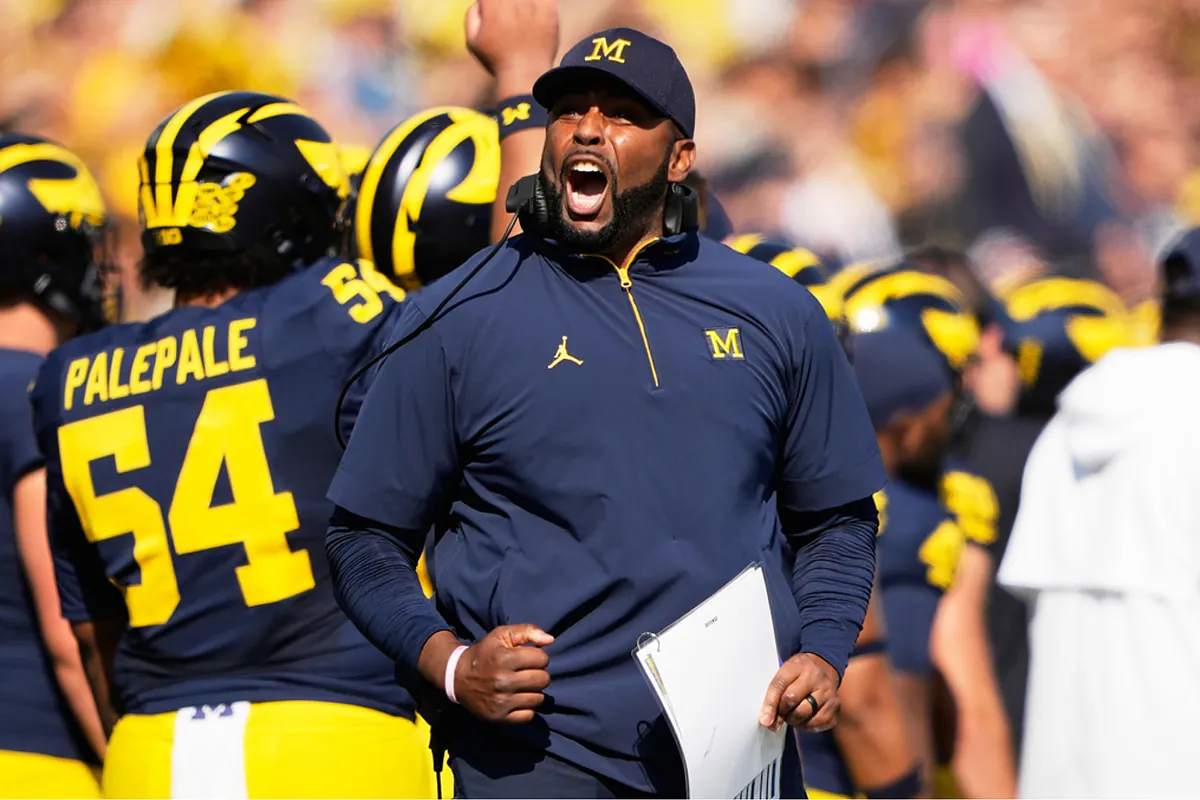

The University of Michigan is no longer just balking at the Big Ten‘s proposed $2.4 billion private equity deal.
It’s openly considering a dramatic exit if the conference moves forward without its backing.
At the heart of the dispute: a high-stakes proposal involving UC Investments, the University of California system’s asset manager.
The plan would funnel billions into a newly formed entity called Big Ten Enterprises.
But Michigan‘s Board of Regents isn’t convinced it’s in the school’s best interest.
Regent Jordan Acker, speaking on NBC Sports’ “College Sports” show via SiriusXM, laid out a warning:
“Michigan has a lot of options. The possibility of independence for football is certainly something that has to be considered.
“Not today, but at the end of the grant of rights … because the commissioner’s office has made it enormously clear that they’re going [to move forward with the proposed capital deal] without us.”
He added bluntly, “That would be the end of Michigan, as far as I can see, in the Big Ten conference.”
For its part, Michigan has increasingly framed the plan as a threat to the conference’s long-term independence.
Acker said that binding the university to such a deal, especially one that would extend the Big Ten‘s grant-of-rights through 2046, could betray its fundamentals.
“Signing the extension 21 years down the line is a pretty big thing to do when you don’t know what college football is going to look like four or five years from now,” he said.
Big Ten pushes back hard
The Big Ten has responded sharply to Michigan‘s warnings.
Commissioners and school leaders argue that the process has been collaborative, not coercive.
Mark Bernstein, chairman of Michigan‘s Board of Regents, alleged that Commissioner Tony Petitti threatened repercussions if the university refused to support the deal.
“The Big Ten conference commissioner has threatened the University of Michigan with penalties if we do not approve this deal,” he said.
“Nobody pushes around the University of Michigan – ever.”
But league officials dispute that narrative. According to Maryland President Darryll Pines, who chairs the Big Ten‘s council of presidents and chancellors, the deal was vetted through a working group that even included Michigan.
“This has been a collaborative, fair and thorough process,” he said.
A fight over governance and future control
The issue isn’t only about money. Michigan seems to be pushing back on two fronts: the risk to its autonomy, and the fear that it could be sidelined by a deal that cedes too much control to outside investors.
Regents like Acker argue that by giving a private firm a stake in future media revenue, the Big Ten could undermine its own structure – especially if not all members are on board.
This news was originally published on this post .






Be the first to leave a comment